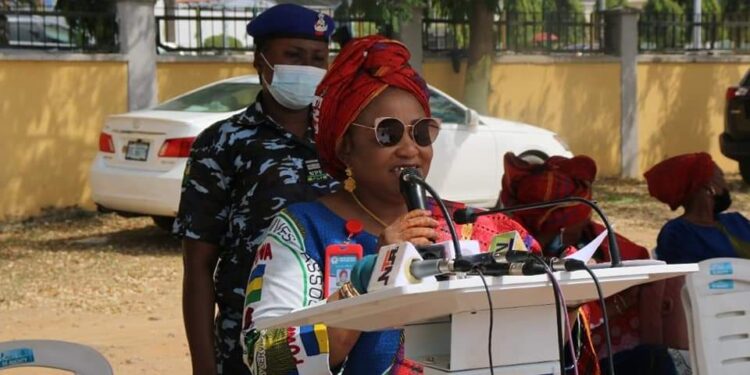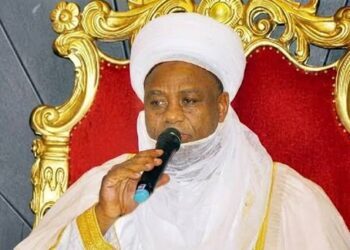Some police officers’ wives and other traders, owners of shops at the Police Officers Wives Association (POWA) Shopping Complex, Computer Village, Ikeja, have protested against a planned demolition of the complex.
They carried out a peaceful protest on Thursday in Ikeja after the complex was allegedly sealed by the state government to pave the way for the demolition.
The News Agency of Nigeria (NAN) reports that the officers’ wives and traders had earlier raised alarm over alleged plan by a group of persons parading themselves as policemen and using the name of the wife of the Inspector General of Police (IGP), Mrs Elizabeth Egbetokun, to demolish the complex.
NAN learnt that a senior police officer, allegedly connived with a property developer to displace thousands of traders, including police officers wives trading at the complex.
Mr Tobechuwku Maxwell, immediate past chairman of the complex, expressed sadness over the proposed demolition, stressing that the complex was feeding thousands of families, including police officers.
Maxwell called on Mrs Egbetokun, who is the POWA President, to intervene and disallow the impostors from carrying out their sinister motive.
He also appealed to the IGP to use his good offices to put a stop to the demolition and fish out those behind the illegality for prosecution.
“We are appealing to him to help us. We are law-abiding traders trying to eke out a living. If we are pushed out of the market, thousands of us will lose our means of livelihood and those who depend on us will also suffer.
“The plaza is owned by widows of former police officers and serving officers. In 2019, the complex was marked for demolition and when we inquired from Abuja, we were told that a developer who is desperate to have access to the complex is the one making effort to chase us out of the complex.
“Unlike 2019 when we got a notice of demolition, now we were only told to move out. We are hearing from the grapevine that the developer and others wanted to pull the building down unaware and vandalise our various goods worth billions of naira,” he said.
Mrs Abisola Azeez, the Iyaloja of Computer Village, said when the complex was being built, she was part of those who funded it
Azeez pointed out that only God had kept them in the complex up till now as different people always harrassed them whenever a new IGP comes in.











